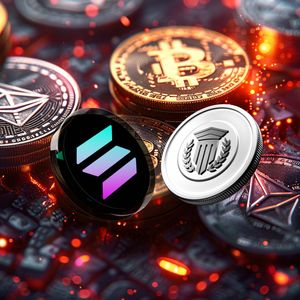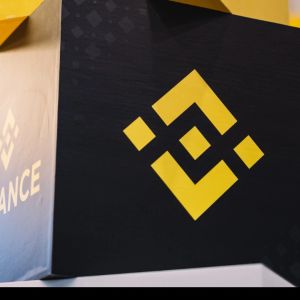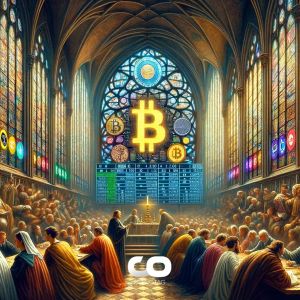FIFA Enters the Blockchain Arena with New EVM-Compatible Chain and NFT Platform Migration
4 min read
FIFA is taking a big step into the decentralized world and is setting up its own blockchain infrastructure: a FIFA EVM-compatible blockchain network. This network will be the basis for FIFA Collect, the organization’s official NFT platform, which is not only to be built on this infrastructure but is basically forced to make the move, as its current blockchain, Algorand, is in meltdown mode and is about to declare bankruptcy. FIFA is launching its own EVM-compatible blockchain to host its NFT platform, FIFA Collect, which will migrate from Algorand starting May 20. After the move, only EVM wallets like MetaMask will be supported. pic.twitter.com/N9JJmh1W2O — Satoshi Club (@esatoshiclub) April 30, 2025 The transition represents much more than a simple change of platform. It reflects FIFA’s pivot from working with intermediaries to taking direct control of its blockchain operations. As the global governing body for football (soccer) not only adopts the new technology but also rolls out its own infrastructure, it appears set to make significant, if not seismic, alterations to the way fans interact with the game in the coming years. From Third-Party to First-Party: FIFA’s Direct Blockchain Strategy That shifts on May 20. After the shift finishes, FIFA Collect will only be functioning with EVM-compatible wallets, such as MetaMask. This is a pretty big move. It’s kind of like leaving the NFL for a comparable gig in college football; at least with the same college, your life is very much your own, and on the EVM side, you’re getting way more of a lived blockchain experience. And if we take FIFA Collect at its word, the totality of the College Football Experience in the EVM is something more than just Infinite App Dungeons; it’s apparently also rendered with Audiences as Experience. This strategic pivot coincides with the increasing push behind chains that are compatible with Ethereum. Such chains are emerging as the dominant players in the landscape of non-fungible tokens and decentralized applications. This is happening for a couple of reasons, one of them being that the infrastructure of these chains is very friendly to developers. And they have a lot of support across wallets, which is the other piece of the puzzle. FIFA Rivals: Web3 Gaming with Polkadot The ambitions of FIFA regarding blockchain are not confined to collectibles. They are also venturing into gaming through FIFA Rivals, an officially licensed Web3 game that is developed by Mythical Games. In contrast to FIFA Collect, which is transitioning to an EVM chain, FIFA Rivals is constructed on Polkadot, a decentralized, highly scalable multi-chain network celebrated for allowing seamless interoperability across different blockchains. FIFA Rivals offers a more community-centric, interactive gaming format. It makes use of Polkadot’s excellent underlying technology, which is tailored for gaming applications. Asset ownership is actually built into the game. There is an in-game economy, and your identity is decentralized. This represents a monumental leap in how sports games can pull fans in. FIFA is moving its entire digital collectibles platform to a new EVM-compatible blockchain ecosystem. Until now, FIFA Collect was managed through a third-party provider. This marks FIFA’s first direct dive into blockchain technology. Also, keep in mind that @FIFARivals is an… pic.twitter.com/HPJCB8fIkw — NRL (@nrlartt) April 30, 2025 Especially noteworthy is Polkadot’s involvement, as the network had previously stated its intention to onboard millions of new users into the Web3 ecosystem. With FIFA Rivals, that vision is starting to materialize. The game has already begun onboarding global fans who might be interacting with blockchain for the first time—without the friction typically associated with wallet setup or technical know-how. Blockchain as a Core Fan Engagement Strategy FIFA’s two-fold strategy—possessing a blockchain network for collectibles and authorizing immersive games based on decentralized infrastructure—reflects a far better grasp of the morphing digital milieu. When many standard organizations have dallied with NFTs and blockchain, FIFA has set about integrating these instruments into the very heart of its fan engagement strategy. FIFA now has its very own EVM-compatible blockchain where it can experiment directly with fan tokens, digital ticketing, loyalty rewards, and interactive event experiences. At the same time, FIFA Rivals demonstrates how blockchain can work in a very mainstream gaming format without user overload in terms of technical complexity. This ecosystem approach is all about the collectible, the community, and the gaming—reflecting Web3’s new direction, in which users are no longer just present as passive content consumers, but really own and interact with the content in decentralized spaces. Looking Ahead As FIFA gets set to launch its blockchain and migrate FIFA Collect on May 20, all eyes will be on the platform to see how it evolves in its new, self-managed environment. Exclusive support for EVM wallets like MetaMask certainly widens and Web3 user base, but the move away from Algorand in favor of the Ethereum standard sends an unmistakable signal of intent regarding FIFA’s further embrace of the dominant standards in NFT infrastructure. Alongside the continuous success of FIFA Rivals on Polkadot, these developments send a clear signal: FIFA is not merely experimenting with blockchain; it is constructing a future based on it. Disclosure: This is not trading or investment advice. Always do your research before buying any cryptocurrency or investing in any services. Follow us on Twitter @nulltxnews to stay updated with the latest Crypto, NFT, AI, Cybersecurity, Distributed Computing, and Metaverse news !

Source: NullTx



